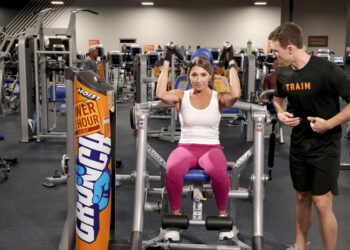Russ Sorenson was diagnosed with Parkinson’s disease in 2007. Overwhelmed with information on an incurable disease, he sought out help from doctors about his next steps.
“I had found myself being introduced to an ever-increasing number of medications aimed at addressing the motor symptoms of this degenerative disease,” said Sorenson. “I was surprised to find that most of the literature I read tended to focus on the use of medications, rather than lifestyle changes.”
Years later, in December 2014, Sorenson ended up in an operating room. He had received a cardiac stent for a blockage. During this time, he realized he needed to clean up his act by addressing his diet, fitness and mental attitude.
“The unexpected outcome of three months of intensive cardiac rehab was that I began to feel less constrained by the effects of Parkinson’s disease,” said Sorenson. “I was also able to function better in all aspects of daily living, despite the continual advance of the disease.”
Sorenson began volunteering with the Parkinson Foundation of the National Capital Area (PFNCA), an organization dedicated to the establishment of local programs to assist those dealing with the disease and their caregivers in the D.C., Maryland and Virginia areas. This sparked the idea of bringing a class to the Reston, Virginia area. With the help of Sorenson, trainers at a local Sport&Health and the PFNCA, a class dedicated solely to helping those with Parkinson’s disease was developed.
“As I improved my core strength, I have found I do much less of losing my balance than I did before,” said Sorenson. “It’s not reversing the disease, but it’s certainly holding it at bay.”
Sorenson believes the social side of having a class, like the one at Sport&Health, holds as much weight as the physical aspect.
“I think having this class in a gym specifically for us gives the social support needed to battle depression and isolationism that often comes with people who have an observable disease,” said Sorenson.
Natalie McCall, a trainer at Sport&Health, explained how more and more instructors will need to feel comfortable with training older adults at a slower pace in the coming years. Sorenson and McCall both described the needs of an aging population as not being very different from someone with Parkinson’s disease.
“We are going to have a lot of baby boomers in the U.S. looking to exercise,” said McCall. “Trainers need to feel comfortable training this generation. Just because someone is in their 60s and wants to lose weight doesn’t mean they should be doing box jumps. You have to find a way to get them to lose weight outside of the popular ways.”











Love Natalie! The best trainer ever!
I am 63 years old, I was diagnosed of Parkinsons disease at the age of 57. I had severe calf pain, muscle pain, slurred speech, frequent falls, loss of balance, difficulty getting up from sitting position. I was placed on Sinemet 3 times daily, it helped me but not very much. My neurologist advised me to try natural treatments and introduced me to NewLife Clinic Parkinsons Disease Herbal formula, I read alot of positive reviews from other patients who used the treatment and i immediately started on the treatment. I had great improvement and relief with this treatment, total decline of symptoms. Great improvement with speech, co-ordination, balance, muscle, mood etc, I gained back my life with this treatment and can never be thankful enough. Visit NewLife Clinic official website ww w. newlifeherbalclinic. com
My life is back!